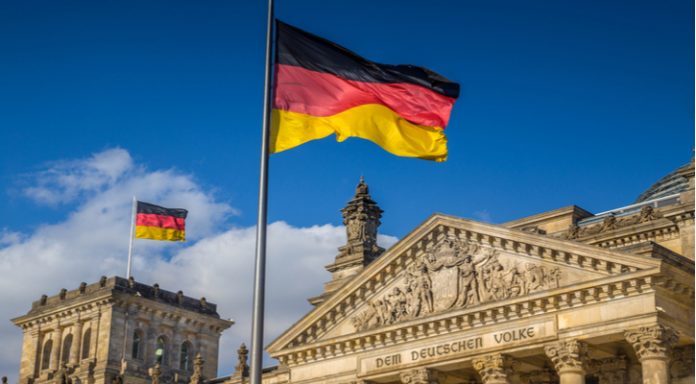- Pound (GBP) falls after jobs data
- Wage growth cooled by less than expected
- Euro (EUR) rises German ZEW economic sentiment surged
- Eurozone GDP contracts
The Pound Euro (GBP/EUR) exchange rate is resuming its selloff. The pair rose +0.3% in the previous session, settling on Monday at €1.1474 and trading in a range between €1.1428 – €1.1504. At 11:00 UTC, GBP/EUR trades -0.17% at €1.1458.
The euro is pushing higher as investors digest a slew of data from the eurozone region. German ZEW economic sentiment was the most impressive, climbing to 9.8 in November, up from -1.1 in October and coming in well ahead of forecasts of 5.5.
The eurozone’s ZEW economic sentiment experienced a similar upswing, surging from 2.3 in October to 13.8 in November, well ahead of the forecast 6.1.
The data suggests that the economic downturn in Germany has bottomed out. The data also shows that inflation and both long and short-term interest rates expectations appear to have reached turning points.
Also in focus were the eurozone GDP figures, which confirmed the preliminary reading of a 0.1% contraction after rising nought .2% quarter on quarter in the second quarter. The data reaffirms that the euro area economy contracted modestly in the last quarter.
The pound is falling after the latest UK employment data showed a mixed bag.
On the one hand, unemployment remained unchanged at 4.2%. Total wage growth was higher than expected at 7.9% in the three months to September, down from 8.2% in the three months to August. However, economists had expected total wage growth to cool to 7.3%.
Meanwhile, the number of vacancies fell by 43,000 in the third quarter to 988,000, suggesting that the UK labour market is starting to cool.
The mixed data comes as the Bank of England considers whether to raise interest rates again. While the pay growth has cooled, it may not have cooled sufficiently for the central bank to be confident that it can quickly get inflation back to 2% quickly.
However the fact that the pound is falling suggests that the market is comfortable that this data didn’t adjust expectations for the BoE’s next move. The market is pricing in that the BoE is at peak rates and is forecast to start cutting interest rates in June next year.





